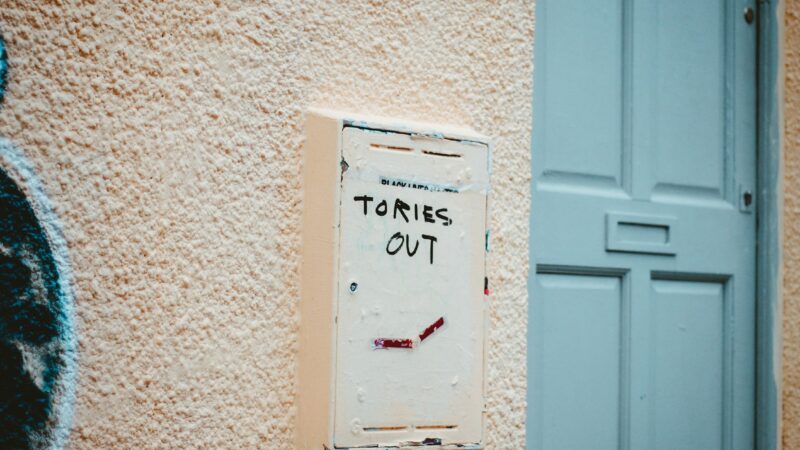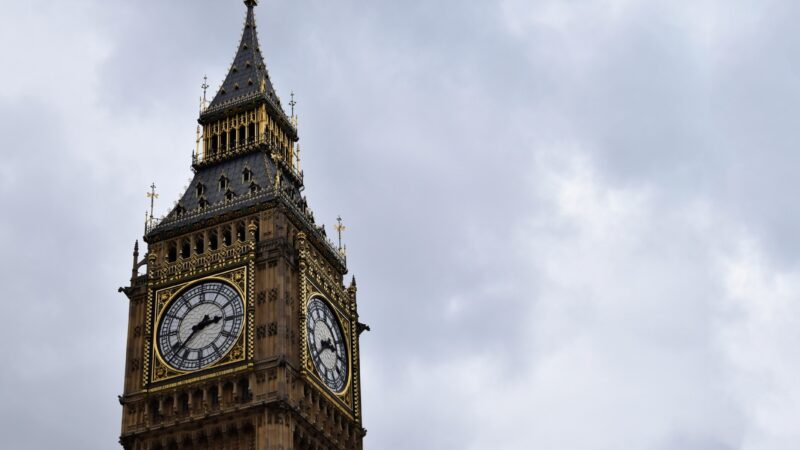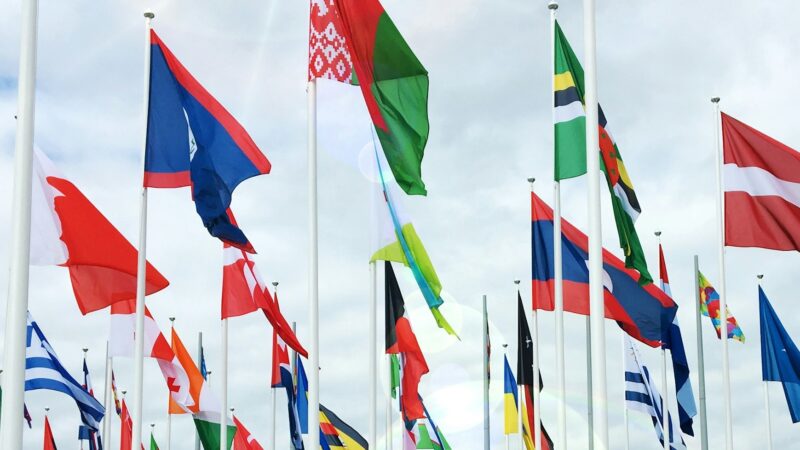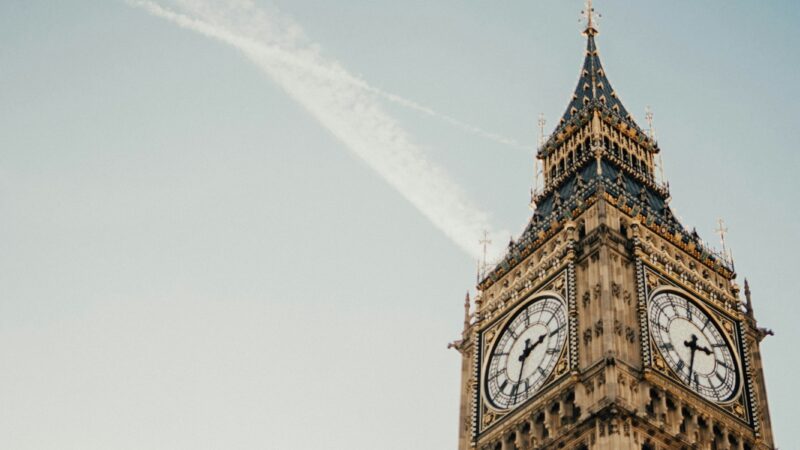Time To Stop Being Conservatives
‘Conservative’, big and small ‘c’, is blah. Blah party, policies, politicians, polls, prospects, and that’s just the ‘p’ words.
Let’s deal with ‘party’ first. Perhaps you’ve already stopped being a Conservative. There’s plenty of debate among the duckies about leaving, destroying, destroying and rebuilding, long marching through, etc. the Conservative Party. Whatever, sure, broadly, one way or another, there should be a proper political force which reflects ducky views. More on this later.
The real question is this: should you even be a conservative, let alone a Conservative, any more? What is the virtue of being a ‘conservative’? It’s a small tactical mistake, with large consequences, but easily tweaked and fixed. The Conservative Party may present itself as conservative and full of people who are not. How has that worked out?
Policies. What on a practical political level has ‘being a (C/c)onservative’ got you for the last decade, or more? What is it getting you now? What does it look like it’s going to get you in the next decade…or more?
Politicians. Ultimately, it’s these guys to blame for the blah policies. It shouldn’t be any surprise that the Conservative Party has blah policies though. Just look at its politicians. I’ve written at length (see the May 2022 magazine) about how, basically, the Conservative Party doesn’t select for competence, it selects for loyalty, and how changing its composition is unrealistic. You’re just going to have to be stuck with a ministerial cadre which belly flops, marries pensioners, plays hide and seek, and gobbles knobs for public entertainment. Is it even accurate to say that these people present as ‘conservative’ while failing to govern as conservatives? In any case, why are you surprised that they’re failures, and why would you care to keep associating with them? It’s time to stop being conservatives.
Polls. When the presentation of ‘conservative’ is so beyond saving, all that’s left is the reverse. Be conservative, act conservative, but don’t care to present as a conservative. Keep all the principles, attract the people who have them, those who like to pretend they don’t because it’s not fashionable, and those who are merely superficially put off. It costs you nothing but, what, comfiness, pride, what? To ditch a label which gets you nothing practically or aesthetically?
Jake Scott is right. Conservatives aren’t cool. Isn’t it incredibly telling that I’m by far the coolest person he knows and I’m not a conservative? It’s why I’m telling you not to be too. It’s not just the young fogeys, Thatcher throbbers, port & policy chortlers, MP-selfie-profile-pictures – does that cover it? – it’s the concept itself.
Prospects. Alright, this is a bit flimsy, and I’m done with this ‘p’ gimmick. ‘Conservative’ keep you trapped in a progressive paradigm, limiting your prospects. You are conservative relative to their progress. Sure, they’re progressive relative to what you want to conserve, but is that really how it’s taken in the zeitgeist? It doesn’t work the other way around. ‘Conservative’ doesn’t sound like you want to keep what’s what. It sounds like there’s one of two broad choices you can be, left/right, Conservative/Labour. What is it to present as the ones who just want to stick where you are and do nothing? “But there’s plenty I want to build and fix and do to make the UK excellent”, you say. Good! I hear you. In fact, a line from The Mallard’s own Wednesday Addams in her review of Peter Hitchens’ new book stood out to me. “He mourns not for a pristine past, but a future that never was”. Does the word, name, presentation, etc. of ‘(C/c)onservative’ ever connote that idea too? Would anyone associate the word or concept of the future with ‘(C/c)onservatives’ on Family Fortune? Whatever, this is a small tweak too.
Don’t just mourn, don’t be one of those people who seem to enjoy self-pity, wallowing in the ‘man among the ruins’ thing. Even if it’s not so negative, don’t just be twee, oh the green and pleasant land, God save the King, blah. Find and keep what’s valuable, think about how to conserve it, but also how to bring it into the future. While you’re at it, adjust your attitude toward the future. Hitchens is an old man, so whatever, maybe it’s forgivable that all he can do is mourn for a future that never was. But you can act for a future that will be. It will. And you have to totally unironically, unreservedly believe that. Make it a matter of truth!
Jake Scott is right again. Stop pretending as if you are living in a liberal pluralist society in which different ideologies are just different options in a marketplace. I’m not sure this is quite what he meant, but it’s my take: some ways of doing things are better than others. Whether that’s economic, educational, social, whatever. There are better and worse ways of running a country. The progressives are objectively shit.
Truth. You are not a conservative, you are not right wing, even, you just believe in the truth. Twitter has been in the news, let’s use that as an example. The now dismal, disgraced, and now discarded Vijaya Gadde, could not even begin to conceive that Twitter had biased rules against conservatives on defining ‘misgendering’. It’s because her opinion wasn’t just an opinion. It was the truth. Of course, she was wrong. You are the ones with the truth. This is going to get tiresome referring to the same Jake Scott video, but he is right again. If anything he isn’t radical enough. On some things there just is no battle of ideas. There is no debate on insanity. Not in the real world, at least, maybe stuffed away in university philosophy departments where the debate can keep going for 3,000 years without resolution and not interfere with anything that matters.
Anyway, the truth is also that broadly conservative ideas about a whole range of topics are held by most of the country. Brexit was the big one, already proven. Next could be anything from immigration to British values, house building, tax, or all of them if only there was a proper political force prepared to go for it. More on that right at the end. In the meantime, what you believe is true and it will come to be, because you are going to make it happen.
This article hasn’t come out of nowhere, exactly. There does seem to be some buzz around the idea of ‘sensible centrists’. Is that the right branding? Not sure about it, but the concept is onto something which is good politics.
TL;DW, examples from the linked video: 1) it’s extreme to import hundreds of thousands of people to the country, the sensible position is to set immigration by what the country needs, 2) it’s extreme to let crime go rampant and obsess over the relatively small problem of one or two racist police, the sensible position is to be tough on crime, or 3) it’s extreme to hire thousands of people to obsess over a small number of people getting offended, to the tune of billions, rather than just not cater to that hysterical timewasting minority.
It’s not an entirely new idea, but popularising it in ‘right-wing’ circles is valuable, and so is the formula, which is new. The proof that it’s good is that it has been done before. How far back do you want to go? Curtis Yarvin presents Caesar as an imperially purple (red/blue/Republican/Democrat) end to chaotic fighting between extremes – a sensible centre. More recently Vote Leave presented the ‘leave’ option as a sensible left and right-backed, cross-party, non-UKIP, sensible centre which was merely taking back control from an extreme EU, where actually remaining would be the less certain, more dangerous, crazy option.
Does the UK feel stable, well-governed, on the right and true path, today? Is the UK sensible or extreme? See the appendix below if you need any help. Everything is totally fucking awful. It doesn’t even have to be! It could just be well governed instead. You’re not a conservative, you just want a good government.
Today, it is governed by Conservatives. It has been backed by conservatives or otherwise simply just not replaced by conservatives, and in any case conservatives have been totally contaminated by the idea of Conservatives. On top of all of this, when you have the truth on your side, what is there even to be gained by being (C/c)onservatives? Again, see the appendix below for some sense of the scale of the problem.
I’m not sure what exactly is next. Rallying around any sort of name or group or identity, especially if it isn’t totally solid and ready, presents a target. For now it’s enough to simply reject the idea that you are a conservative, or right-wing, especially when asked or characterised as such.










Watch Out for The New Labour Playbook
Yes, Labour is still the party of identity fetishists, true-believer yet Dad’s Army-esque revolutionaries, end of times Gaia environmentalists, and public transport strike supporters, groomers, and much else, but so was New Labour. They just knew how to keep the lunacy contained, repackaged, and were desperate enough to try Blair.
Fortunately, Blair did a lot of damage to his own side, not just the country. Blair’s incrementalism didn’t manifest their objectives quickly enough. They were willing to grumble and tolerate it until the Iraq War. From that point on, it became impossible to contain the lunacy; spiralling down through more and more left-wing figures, from Brown to Miliband and then to Corbyn. Consequently, they have tuckered themselves out.
The loss of monolithic public news and broadcasting will also make it much harder, New Labour’s ilk will try to come back. You can still see them. They haven’t gone anyway. They won’t just come from the party, they’ll come from all the people and organisations on their side. Blair himself is still knocking around. The advice comes regularly to ditch the overt progressive evangelism e.g. November last year, May this year.
There’s been a slow trickle of pieces which say things like “Labour need a big personality to take on the Tories”. They’re trying their best to manufacture this. Have you seen the attempts to make Wes Streeting out as if he’s interesting and not just another factory pipeline student union politician, in career background and mindset? Good grief. Progressives used to rob banks, fight guerrilla wars, and write their defiance in their own blood. Sure, threats should be taken seriously, and it’s unpleasant, but Wes, what are you doing sending limp tweets to old ladies?
Anyway, it’s good news! As it stands, the two go-getting types of the progressives are (at least, temporarily) inhibited: the energised, violent, “true believers”, are somewhat withered, and the “professional” sorts have a monumental amount of work to do. They are rebuilding, though, so keep an eye out.
If they can become credible on the following, they’ll be doing well: 1) Tough on Crime, 2) Pro Business, 3) Strong on Foreign Policy, 4) Strong on Defence, and 5) Solid on Our Public Services. It’s going to be difficult. A lot of Labour supporters don’t want to engage on those policy areas at all in the first place, let alone have workable answers to them.
The thing to watch out for is Blair’s two main tricks, which are closely related 1) talking out of both sides of their mouths and 2) presenting progressive solutions in their opponents’ terms.
Regarding the first trick, let’s use immigration as an example: one of the big progressive no-nos, a big right-wing concern, but which they really need to answer.
Just look at the headlines, which tell their own story. Blair admits he didn’t realise how many migrants would come to the UK after EU expansion. OK, but then he also says that immigration is good for the UK economy. Finally, he said that if you want to stay in the EU you have to curb immigration.
None of this is about lowering immigration based on principle or reflects right-wing concerns, or even the general popular reasons why people want it lowered. It’s about tactical necessity, in service of bigger picture goals – staying in the EU and reinforcing hegemony at home. Blair doesn’t admit he was wrong or that mass immigration has been damaging – he is talking out of both sides of his mouth! This helps him to try to flank his political opponents with positions which superficially appear to speak to right-wing concerns.
The reason he does this is very simple and not at all an original observation. In democratic politics it’s (sometimes) a viable strategy to go for (what you think is) the “centre ground”. Labour leaders who won – Ramsay MacDonald, Clement Atlee, Harold Wilson, and Tony Blair, all toned down the crazy in pursuit of the “sensible” and “moderate” centre ground.
Not that it seems to matter – progressives run all the main institutions and the nominal Conservative Party acquiesces and even adopts their agenda and aesthetic – but the key realisation of Blairism is that you must have power to do anything. Public support certainly helps reinforce the perception of complete hegemonic power and the justification for it.
Until Labour gets this by winning an election, the Conservative Party might just safely trundle along. God have mercy on you, Conservative Party. Govern! Or if you must insist on such dull imbecility, get out of the way. Go, all of you, retire to the House of Lords or wherever else you think gives you a veil of dignity, and whatever place can use the content, unaware, and immobile.
Anyway, if Labour doesn’t learn the lessons of Blairism, it risks being confined to 1) old style tax and spend and state power economics, 2) foreign policy which is anti-UK in one way or another, 3) marginal identity fetishism, and 4) screeching denunciation of anyone that dissents. This is because 1) misreads the lessons of the financial crisis, 2) misreads the proper responses to 9/11 and the Iraq War, 3) sees the progressives stuck in the tar-baby of the Culture War (which I am certain it will lose), and 4) just shows them to be unstable, and therefore as unfit to rule.
All of this would be a bit clapped out, but it would be safe and familiar for them, and do they even have the vision to see beyond? Reality and the general zeitgeist have moved on. Conservatives would do well to keep them stuck here.
There are ways out, and Labour seems to be doing a few of these things, though it’s hard to know if they really get it, half get it at someone else’s instruction, or if it’s accidental or coincidental. It’s also unclear how much any of the following will help them.
First, they seem to be hinting at a new progressive coalition i.e. Lib Dems, Greens, etc. tactical voting, selective standing of candidates, to avoid splitting the progressive vote. Will this work? Many use these parties as protest votes and you’d be surprised how many Conservative voters, for example, vote Green or Lib Dem at different elections, for all sorts of reasons, but who would never do it at a general election.
Second, watch out for Labour updating its policy agenda. Safe on this one so far. If they’re sensible it would stop being economically illiterate and suspicious of technology. It would also mean the progressives fully realising that corporations can be used and are willing to side with them if the conditions are right, no matter how temporary. The capitalists really will sell you the rope with which they’ll be hanged. It’s quite something!
Third, watch out for Labour re-discovering the mentality of government. The right needs to do this too, it must be said. The task is to amass power and to assume that (of course) it should be you governing. To do this the left will need some more self-discipline and less self-indulgence. The Labour Party’s sins are pride (how fitting!), envy, wrath, and gluttony. The Conservative Party’s sins are pride and sloth. This tactical swallowing of (some of) their pride doesn’t burden them to pursue policies people actually want. They’ll continue to insist that what voters want aligns with what the Labour Party wants, albeit overlaid with a veneer of sincerity and concern made possible with a more “moderate” leadership. New Labour was subtler still.
New Labour worked because people knew that Blair was prepared to discipline and channel the more insane parts of the Labour Party. Superficially, denial and discipline look very similar. It gave Labour the appearance of normality, reassured enough extra voters, and afforded them the cover of public acceptance to proceed with full-on nation-mutilating progressivism.
Watch out for the New Labour playbook. It will start with Labour controlling its incontinence. It’d be great if the Conservative Party got ahead of the problem by governing. Keep them busy responding to you, keep them too busy to get out of where they’re stuck.
Photo Credit.